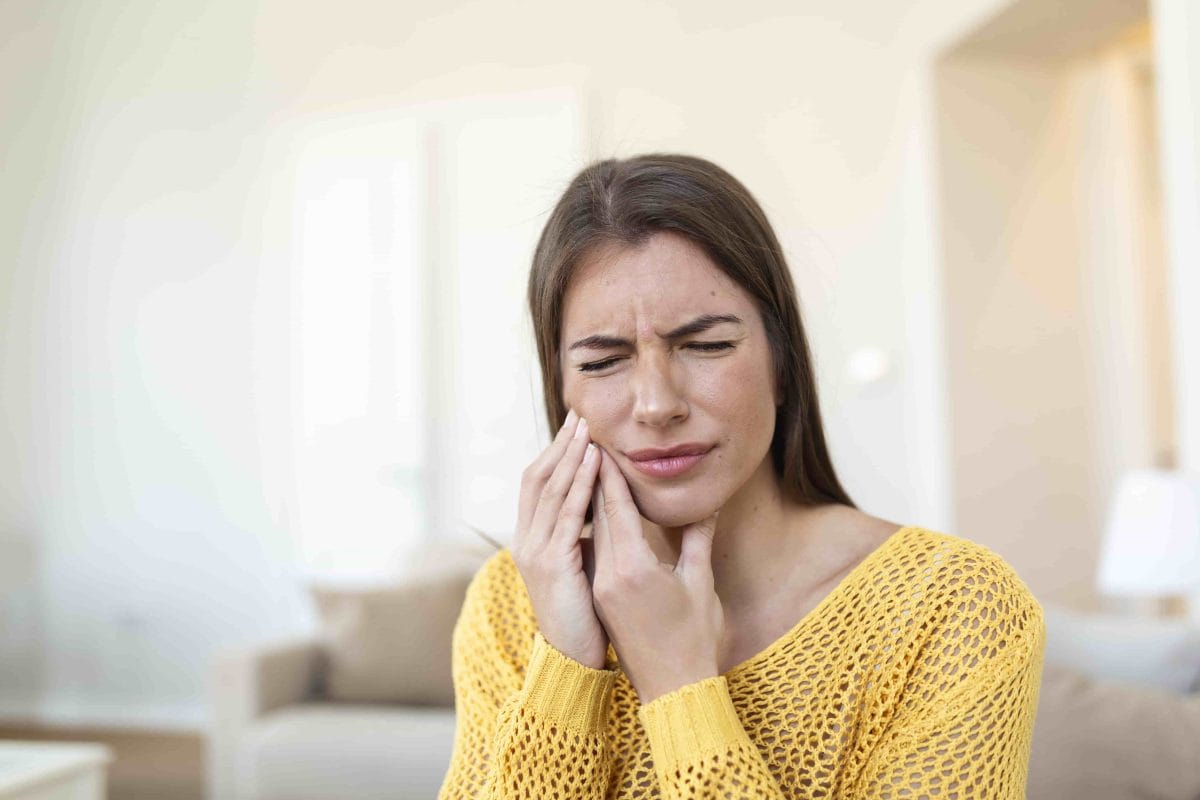At The Dental Abode, we understand that a toothache, especially one requiring a root canal, can be really painful.
While the procedure itself is performed with anaesthesia to minimise discomfort, some throbbing pain or tenderness afterwards is totally normal. Don’t worry; this discomfort is temporary and you can take steps to manage it effectively.
In this blog, The Dental Abode team will guide you through everything you need to know about treating throbbing pain after a root canal. We’ll cover medication options, home remedies, and when to contact your dentist.
How painful is a root canal?
Many people associate root canals with intense pain, but that’s actually a myth! An experienced dentist (like the ones we have here at The Dental Abode), will always prioritise your comfort throughout the procedure.
Let’s break down what to expect:
- During the procedure: You shouldn’t feel any pain during the procedure as you will be given local anaesthetic. The area around the tooth will be numbed, ensuring a comfortable experience.
- After the procedure: It’s normal to experience some soreness or throbbing pain after a root canal. This discomfort arises from the inflammation caused by the infection and the manipulation of the tooth during the procedure. However, this pain should be mild and manageable.
Remember, the throbbing pain you might feel is a sign of the infection being addressed, not a reflection of the procedure itself. While some discomfort is expected, severe pain is not. If you experience significant pain after your root canal, be sure to contact your dentist to discuss your concerns.
How long does root canal pain last?
The good news is that the throbbing pain you might experience after a root canal usually doesn’t last long! Here’s a general timeline for what to expect:
- First few days: This is when you might feel the most discomfort. Most patients experience some soreness or throbbing pain that peaks within the first 2-3 days after the procedure.
- Gradual improvement: Over the next few days, the pain should gradually subside. By day 5 or 7, you should feel much better.
However, it’s important to remember that everyone heals at their own pace. A few factors can influence how long you experience pain after a root canal:
- Complexity of the procedure: More complex root canals involving multiple canals, or a severely infected tooth, might take a little longer to heal completely.
- Individual sensitivity: Some people naturally have a lower pain tolerance than others.
If your pain doesn’t improve within a week or worsens at any point, don’t hesitate to contact your dentist at Dental Abode.
4 practical tips for treating root canal pain
While the procedure itself is designed to be as comfortable as possible, some post-treatment throbbing pain is normal. Your dentist will give you a detailed post-treatment plan to minimise any discomfort. This can include:
- Prescribed pain medication: Your dentist will provide you with a prescription based on your individual needs and medical history.
- Cold compress: Wrap ice or a cold gel pack in a clean cloth or towel and lightly press it against the cheek closest to the treated tooth. Hold it there for 15-20 minutes several times a day.
- Soft foods: Hard or chewy foods can put pressure on the tooth and irritate the surrounding tissues, potentially causing throbbing pain or even dislodging the temporary filling placed during the procedure.
- Over-the-counter pain killers: For mild pain, over-the-counter painkillers like ibuprofen or paracetamol can help.
3 home remedies for alleviating throbbing pain
Here are some simple home remedies to further soothe throbbing pain:
- Saltwater rinse: Simply mix a teaspoon of salt with warm water and gently swish several times a day. The salt reduces swelling and has mild antibacterial properties, while the swishing action cleans and keeps the area moist for faster healing.
- Elevation: Sleep with your head propped up on extra pillows as it helps fluids drain away from the treated tooth and surrounding tissues.
- Gentle oral hygiene: Maintain good oral hygiene by brushing gently with a soft toothbrush and flossing carefully around the treated tooth. This prevents further irritation and promotes healing.
When to see your dentist
While some discomfort is expected, it’s important to be aware of signs that might indicate a complication. Contact your dentist right away if you experience:
- Increased pain or throbbing that worsens after a few days
- Significant swelling in your face or gums
- Fever
- Difficulty breathing
If you experience any of these symptoms, it’s important to see your dentist promptly to ensure proper healing and rule out any potential complications.
Remember, at The Dental Abode, your comfort is our priority. We’re here to guide you through every step of the root canal process and ensure a smooth recovery.
At The Dental Abode, we offer specialised root canal treatment at our state-of-the-art practice in Chelmsford. Get in touch today to find out more about our 5-star treatment plans!

